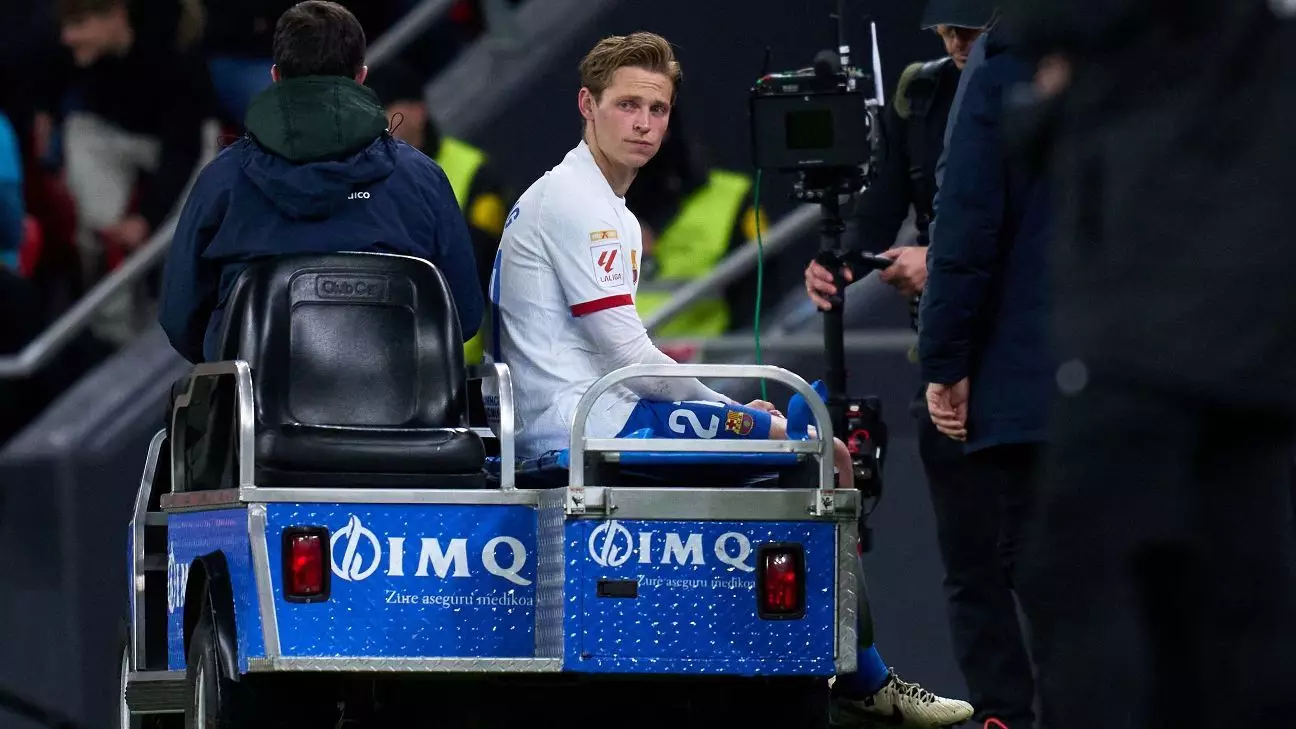The decision made by Barcelona to rush Frenkie de Jong back from injury has garnered criticism from Netherlands coach Ronald Koeman. De Jong was eventually forced to withdraw from participating in this summer’s European Championship due to his failure to recover from an ankle injury sustained in a match against Real Madrid. It is evident that Barcelona’s rush to have De Jong back on the field for crucial Champions League games against Paris Saint-Germain may have exacerbated the situation.
As a result of being rushed back into action by Barcelona, Frenkie de Jong was unable to participate in Euro 2024 with the Netherlands. This not only affected the player personally but also had implications for the national team’s performance in the tournament. The decision to prioritize immediate needs over the long-term health of the player raises serious concerns about the management of injuries in professional football.
Although De Jong has returned to preseason training with Barcelona, the effects of his rushed return are still being felt. His current fitness levels remain uncertain, and the seriousness of his injury has led to doubts about his availability for future matches. Koeman’s comments regarding the extent of De Jong’s injury signal a prolonged recovery period, casting a shadow over his immediate playing prospects.
The absence of Frenkie de Jong had a tangible impact on the Netherlands during the European Championship, resulting in a semifinal defeat to England. This outcome underscores the ripple effect that rushed decisions regarding player injuries can have on both individual careers and national team achievements. The need for a more cautious and long-term approach to managing player fitness is evident in light of these developments.
As Barcelona prepares for the upcoming season under new coach Hansi Flick, the repercussions of rushing De Jong back from injury serve as a stark reminder of the importance of player welfare. Likewise, the Netherlands will need to rethink their strategies for upcoming matches without the presence of a key player like De Jong. Both club and country face challenges in maintaining performance standards while ensuring the well-being of their players.
